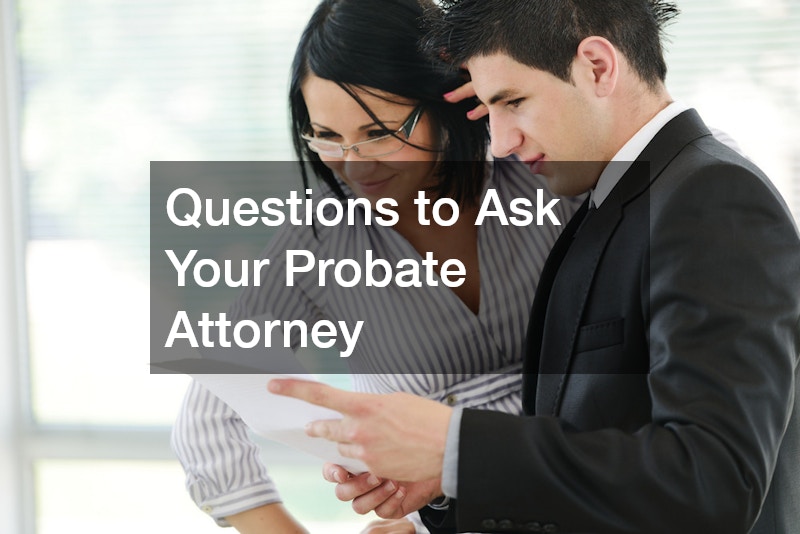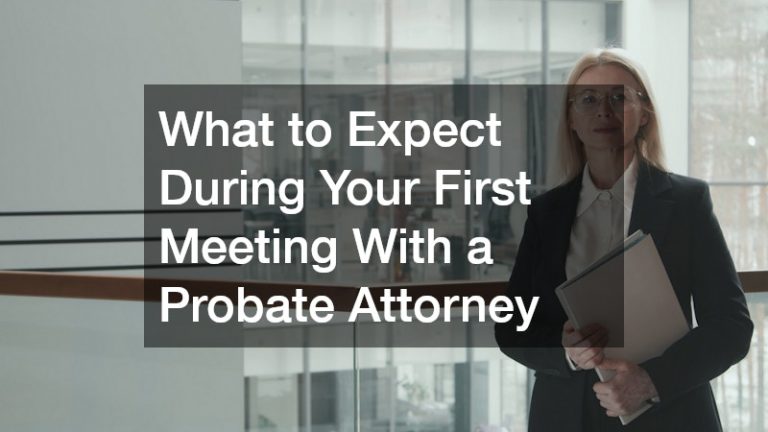Meeting with a probate attorney for the first time can be a daunting experience, particularly if you are unfamiliar with the process of probate and estate planning. Whether you are dealing with the recent death of a loved one or you are planning your own estate, understanding what to expect during this first meeting can greatly alleviate your anxiety.
As you prepare for this important consultation, it is essential to be informed and organized to maximize the effectiveness of your time with the attorney. This article will provide you with a comprehensive overview of what to expect during your first meeting with a probate attorney, including the types of documents you should bring, the questions you should anticipate, and how to understand the legal terminology that may be introduced.
Understanding the Role of a Probate Attorney
Before diving into specific expectations, it is crucial to understand the primary role of a probate attorney. A probate attorney specializes in managing the legal processes associated with settling a deceased person’s estate, including the distribution of assets and settling debts. Their expertise helps you navigate the complexities of the probate system, which can be particularly intimidating if you are unfamiliar with legal proceedings. This is especially important in cases of contested wills, where disputes among heirs may arise. Therefore, knowing that your attorney will advocate for your interests and provide legal guidance is reassuring as you move forward.
During your first meeting, the probate attorney will likely explain their services and how they can assist you through the probate process. They will describe the various types of legal documents required, such as wills, trusts, and letters of administration, and how these documents impact the administration of the estate. Additionally, they may discuss their fee structures, including whether they charge hourly rates or flat fees for specific services. Understanding this financial aspect is important, as it helps you budget for the potential costs associated with probate administration. Overall, the attorney’s goal is to clarify your role in the process and what support you can expect from them.
Ultimately, grasping the role of a probate attorney will set the stage for a productive conversation. You’ll not only learn about the legal aspects of probate but also how to engage effectively with your attorney throughout the duration of the process. This foundational understanding allows you to enter your meeting with confidence, fully aware of the valuable role the attorney will play in resolving the complexities of estate matters. Above all, knowing you have a qualified professional by your side may bring peace of mind during an emotionally challenging time.
Preparing for Your First Meeting
Effective preparation is key to ensuring a successful first meeting with your probate attorney. Begin by gathering relevant documents related to the deceased’s estate, including wills, trust documents, life insurance policies, and any financial statements. Having these documents readily available will enable the attorney to provide you with tailored advice and recommendations. Additionally, it’s beneficial to compile a list of questions or concerns you may have regarding the probate process, as this will keep the meeting organized and focused. Being prepared not only demonstrates your seriousness but also enables a more productive use of your time.
It is also wise to familiarize yourself with basic concepts associated with probate law. Understanding terms like “intestate,” “executor,” and “letters testamentary” will help you follow the conversation and pose thoughtful follow-up questions during your meeting. Many attorneys appreciate when clients take the initiative to learn about the process, as this shows a willingness to engage genuinely with their situation. If you find certain terminology confusing, don’t hesitate to ask your attorney for clarification; they are there to help you understand. Your engagement will contribute to a mutually respectful relationship which can last throughout the probate process.
Questions to Ask Your Probate Attorney
During your first meeting, asking relevant questions is vital in establishing an understanding of the probate process and your unique situation. Start by inquiring about the probate timeline and what steps will be taken to complete the transaction. Understanding the timeline will help you set expectations and plan accordingly. Additionally, ask about the potential costs and fees that may be involved in the probate process, as these can vary widely depending on the complexity of the estate. Clearing up these points up front can save both time and misunderstandings later on.
Another important aspect to explore during the meeting is the attorney’s experience and specialization in probate law. Don’t hesitate to ask about their previous cases, particularly those similar to yours, and how they resolved various challenges. This insight will give you confidence in their capabilities and reassure you that they possess the expertise required to navigate the intricacies of probate. Furthermore, knowing their approach to handling complex cases, such as those involving disputes among heirs, can help you feel more at ease in sharing your own concerns. Specific examples can lead to a better understanding of the probate attorney’s style and strategy.







